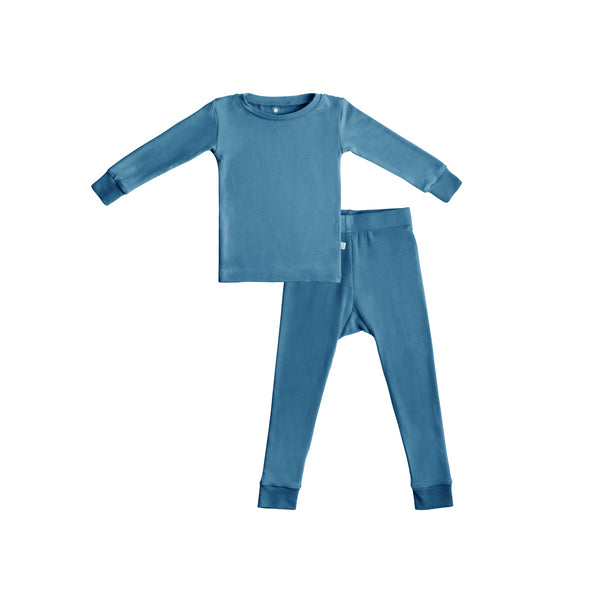How to Help Toddlers Get Better Sleep
As any parent knows, getting a good night's sleep is essential for both you and your child's well-being. And for that matter, anyone else in your household that’s losing sleep over a crying baby. When the toddler stage comes you may be getting excited about the newfound sleep you are about to get - but not so fast. Toddlers are still going through changes that can interfere with sleep. From bedtime battles to middle-of-the-night wake-ups, toddlers have a way of disrupting even the most well-planned sleep routine. If you're a tired parent looking for solutions to your toddler's sleep troubles, keep reading – the secret to sleep is here.
What can you do to help a toddler get more sleep?
#1. Establish a consistent bedtime routine: We get it, life is busy and routines are hard - but establishing a consistent bedtime routine and sticking to it can help your toddler prepare for sleep. You can include activities such as a warm bath, reading a book, and singing a lullaby.
#2. Create a comfortable sleeping environment: Ensure that your toddler's sleeping environment is comfortable, quiet, and dark. Make sure that the room is not too hot or too cold, and make sure they have a blanket they love.
#3. Avoid stimulating activities before bedtime: Before bed should be a gradual wind-down process. Avoid activities that can overstimulate your toddler before bedtime, such as watching TV, playing video games, or rough housing. Your toddler may want to play Hulk and jump off the couches at 7 o'clock, but try to discourage it.
#4. Limit sugar and caffeine intake: Avoid giving your toddler sugary or caffeinated drinks, such as soda or chocolate, especially in the evening.
#5. Encourage physical activity during the day: Physical activity, such as playing outside or taking a walk, can help your toddler feel tired and ready for sleep at night.
#6. Be consistent with sleep schedules: Try to establish consistent sleep schedules, including consistent bedtimes and wake-up times, even on weekends.
#7. Address any underlying issues: If your toddler is experiencing any underlying issues that may be affecting their sleep, such as sleep apnea, allergies, or reflux, consult with a pediatrician to address these issues.
#8. Go back to the basics: When your baby was a baby, did you swaddle them? Did the security of a swaddle help them calm down and sleep? Probably so. As a toddler, they may need the same sense of security to help reduce anxiety and calm down for bed. Dreamland’s Weighted Blanket is ideal for toddlers struggling to fall asleep and stay asleep. Featuring a gentle 4 pound weight, our blanket provides deep pressure stimulation to naturally reduce anxiety and reduce sensory overload. As a result, it can aid in helping your toddler develop healthy sleep patterns.
Typical FAQs from Parents of Toddlers Who Struggle with Sleep:
As a parent, it can be so challenging when your toddler has difficulty sleeping; whether it's trouble falling asleep, staying asleep, or waking up too early. Within the following FAQs, we will provide answers to some of the most common questions and concerns that parents have about their toddler's sleep.
- What causes lack of sleep in toddlers? There are many factors that can contribute to lack of sleep in toddlers including; separation anxiety, teething, developmental changes, illnesses and more. Environmental factors such as noise, light, or temperature can also impact a toddler's ability to sleep soundly.
- When should I worry about my toddler not sleeping? A toddler’s sleeping habits will naturally wax and wane, hello sleep regressions. As a general rule, if your toddler's lack of sleep is consistently affecting their daily life and behavior, it may be cause for concern. Be sure to speak with your pediatrician if you are concerned about your toddler’s lack of sleep.
- Will an overtired toddler eventually sleep? An overtired toddler will eventually sleep, but it can be more difficult for them to fall asleep and stay asleep. When a toddler is overtired, their body produces higher levels of stress hormones, such as cortisol, which can make it harder for them to settle down and relax.
- Why does overtiredness cause early waking? These same stress hormones that make it hard for toddlers to settle down for sleep, can also cause early wake ups. Overtiredness can also contribute to excessive hunger - which in turn, can contribute to an early wake time. We’ve all woken up in a zombie-tired state and went straight to the fridge, right?
- How do you break a cycle of an overtired toddler? Consistency is key. Breaking the cycle of an overtired toddler can take time, so be patient and consistent with your sleep routine. It may take a few weeks for your toddler's sleep patterns to improve, but with time and consistent effort, you can establish healthy sleep habits for your toddler.
- How do you help an overstimulated toddler sleep? Helping an overstimulated toddler sleep is a challenge, but there are things you can do to help including; dimming the lights, using white noise, and limiting screen time to name a few. Additionally, a weighted blanket can help wind-down any overstimulation. The pressure of a weighted blanket can stimulate the release of the hormone serotonin, which can promote relaxation and calmness.
- Should you force your toddler to nap? Forcing a toddler to nap can be counterproductive and can lead to frustration and resistance to napping. Instead, watch for sleep readiness cues and offer naps when those cues are present. Establishing a nap routine can also help set your toddler’s body clock to incorporate nap time.
- How long should you let a toddler cry it out? There is no one-size-fits-all answer to how long you should let a toddler cry it out. The amount of time you wait before responding to your toddler's crying can vary depending on your child's age, temperament, and sleep habits. It is important to approach any method that involves crying it out with sensitivity and empathy, and make sure your toddler’s basic needs are met before initiating.
- What do you do when your toddler won't sleep? When your toddler absolutely will not sleep despite your consistent routine and efforts to make their sleep space as relaxing as possible, it may be time to research different sleep training methods. If you haven’t already, try a weighted sleep sack, swaddle, or blanket. For some this is the secret to the sleep you’ve been dreaming of.
- Why is my 2 year old waking up so early? Often, two-year-olds wake up early due to pure excitement or anxiety. There are a lot of developmental milestones that typically present at two, like learning to talk. These are all very stimulating for your toddler. Additionally, external factors such as a cold breeze in the morning, hunger, or noise and light can contribute to an early wake time as well.
- How do I stop my toddler waking at 5am? If your toddler is constantly waking up before the sun, it may be worth an attempt to push back their bedtime. Keep in mind that toddlers need an average of 11-14 hours of sleep per day between naps and bedtime.
At Dreamland, we know that sleep can be hard for babies. That’s why we’ve partnered with sleep specialists, NICU nurses, and pediatricians to create dreamy sleep solutions for infancy through toddlerhood. Our products prioritize safety while holding the dream of helping more parents and babies get the sleep they deserve close to everything we do.



Share:
Benefits Of Postnatal Yoga
How Teething Affects Baby Sleep